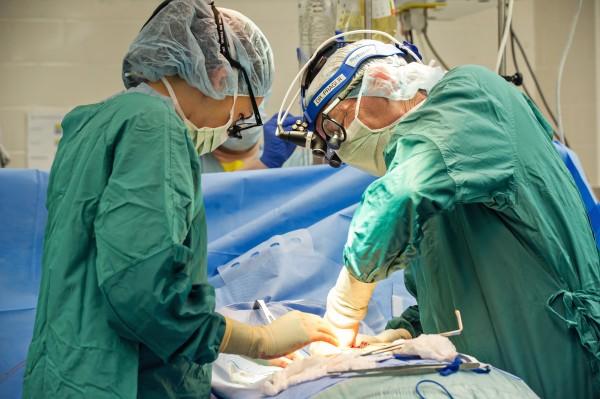
April 19, 2019 — Aziyo Biologics Inc. announced the publication of results from its landmark RECON study in the Journal of Cardiothoracic Surgery1. The prospective, single-arm study included 1,420 patients in 42 hospitals across the United States and represents the largest pericardial-closure study conducted to date. The goal of the study was to evaluate clinical outcomes with pericardial reconstruction using ProxiCor, the company’s proprietary decellularized extracellular matrix (ECM) scaffold designed for the repair of the pericardium.
Every year in the United States there are more than 200,000 coronary artery bypass (CABG) procedures and approximately 120,000 valve repair/replacement surgeries. According to the Nationwide Readmission Database, 1 in 9 CABG patients will be readmitted within 30 days of surgery due to a complication from the procedure, while 1 in 7 valve repair/replacement patients are readmitted for similar reasons. These readmissions alone each cost $15,000-$16,500 on average. Additionally, events such as bleeding and pleural effusion can cost an incremental $19,000 - $22,000 on average2. The clinical and corresponding financial implications of these readmissions and complications create a considerable impact not only on the patient, but also their caregivers and the overall healthcare system following cardiac surgery.
RECON enrolled a total of 1,420 patients at 42 centers in the United States. The enrollment included 923 CABG procedures, 436 valve repair/replacement procedures and 61 other reconstruction procedure. The study showed the use of ProxiCor was safe and effective in various pericardial-closure procedures. Additionally, it showed that when compared to the Nationwide Readmissions Database (NRD)2, ProxiCor patients had statistically significant (p<0.05) reductions in 30 day all-cause hospital readmission rates of 58-66 percent, as well as statistically significant reductions in bleeding, and post-operative pericardial and pleural effusion rates (p<0.05).
“I think conceptually surgeons believe in the substantial benefits of re-establishing normal anatomy and physiology whenever possible. Using an ECM scaffold such as ProxiCor provides a suitable alternative to rebuild and regenerate the pericardium after open-heart surgery procedures”, said the study’s author and primary investigator Alfredo Rego, M.D., Ph.D, medical director, South Florida Heart and Lung Institute. “We now have a prospective study in a very large number of patients that supports the clinical and potential financial benefit of rebuilding the pericardium using ProxiCor.”
For more information: www.aziyo.com
References
1. Rego A., Cheung P.C., Harris W.J., et al. Pericardial Closure with Extracellular Matrix Scaffold following Cardiac Surgery Associated with a Reduction of Postoperative complications and 30-day Hospital Readmissions. Journal of Cardiothoracic Surgery. Published online March 15, 2019. https://doi.org/10.1186/s13019-019-0871-5
2. The NRD database is developed by the Health and Human Services’ (HHS) Agency for Healthcare Research and Quality (AHRQ) as part of the Healthcare Cost and Utilization Project (HCUP).


 January 05, 2026
January 05, 2026 









